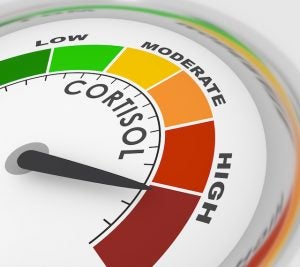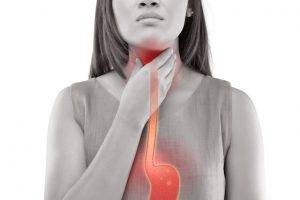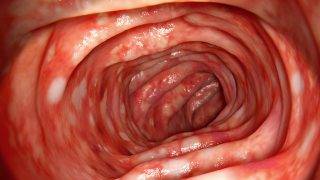While we’re sleeping, the body and mind slowly regenerate and charge to prepare us for the upcoming day. Almost every system in your body requires sleep to function properly. Sleep is the first piece in a long line of dominos and, if it falls, they all start collapsing one by one. Sleep is linked to your digestive system, which means they highly influence one another in ways that most people don’t even suspect. How does digestion affect sleep quality and what impact does sleep deprivation have on your digestive system? Let’s see if we can answer those questions.
Sleep Deprivation & Digestion
Even when you’re sleeping, your digestive system doesn’t rest. It slows down because while you’re resting, you’re not eating. The digestive system regenerates while you’re asleep, and its processes are fueled by glucose you consumed throughout the day. If you eat a large meal before going to bed, then your digestive system won’t get a chance to slow down and rest, which leads to a number of different problems.

Not getting enough sleep can have a series of negative consequences:
- You start craving more sugar. Studies have shown that the body starts to feel hungry when you’re not getting enough sleep because of the hormonal imbalance that occurs. There are two hormones in the human body that are related to this process: ghrelin (which is the hormone that signals you’re hungry) and leptin (the one that tells you when you’re full). When you’re sleep deprived, ghrelin secretion is increased, meaning that you’re likely to feel hungry and take one extra trip to the fridge in the process.
- When you lack sleep, you become more vulnerable to inflammation. That means that if you suffer from digestive problems that are caused by gut inflammation, not getting enough sleep will only make it worse. Lack of sleep leads to an excess of pro-inflammatory cytokines, thus making inflammation much worse.
- Thanks to a proper sleep-wake cycle, your body usually has a balance in neurochemicals, such as cortisol or melatonin. When you’re not getting enough sleep, the levels of such hormones experience an imbalance. Melatonin is the hormone that puts you to sleep, and its levels increase in the evening, reaching peak hours between one and four in the morning. After that, your body reduces the production of melatonin and boosts cortisol levels, which is the stress hormone that makes you wake up in the morning and start your day.
- Sleep deprivation also leads to high stress levels which, in turn, influence your digestive system. The fight of flight mode that’s activated when you’re stressed causes your energy resources to be diverted to your limbs and parts of your brain. When this happens, your digestive system comes to a halt, which means that you’re more likely to have constipation or diarrhea.
Digestion Problems that Cause Sleep Difficulties
There are digestion problems that can impact the quality of sleep as the relationship between sleep and digestion is a two-way street. These issues include:
- Indigestion – People that suffer from indigestion will notice a variety of symptoms that include gastro reflux, heartburn, and others. When you suffer from indigestion, it’s very difficult to fall asleep or even manage to stay asleep, as all positions seem to be uncomfortable and you might wake up several times during the night in need to use the bathroom.
- Heartburn – A condition on its own, heartburn makes it uncomfortable for you to fall asleep. Often a symptom of GERD (Gastroesophageal Reflux Disease), heartburn becomes problematic because acid reflux enters the esophagus and literally creates a burning-like sensation. In the past, it was believed that too much acid production was the main cause for heartburn, but it’s actually the other way around. It occurs because the digestive system isn’t producing enough acid.
- GERD – This is one of the most common digestive problems that affects 10 to 20 percent of Americans. This condition is signaled by symptoms that include acid reflux and heartburn and, when you lie down in bed, it makes it very uncomfortable to fall asleep. People with GERD might even wake up with sensations of choking or an annoying cough.
- Constipation – This is a digestive problem that could occur in spite of you getting your daily dose of fibers, as constipation is known to be stress-related as well. You could also suffer from constipation if you’re dehydrated, as not drinking enough water can slow down your digestive system.
- Ulcerative Colitis – This is an inflammatory bowel disease that creates major discomfort. It makes people experience painful cramps and it typically improves through medication and a strict diet. People that have ulcerative colitis might experience unpredictable episodes of diarrhea, which can interrupt sleep.
- Irritable Bowel Syndrome – People that have IBS often complain about how difficult it is to maintain sleep throughout the entire night, which eventually leads to worse IBS symptoms the next day.
What To Do
If you’re having trouble sleeping because of your digestive system, thus creating a vicious circle where these two influence one another in the worst possible way, don’t panic. There are certain things you can do and certain habits you can adopt to make your life easier from this perspective:
- Don’t eat anything heavy before going to bed. Even if you feel hungry, have a light snack, but avoid eating processed foods or something that’s rich in calories. Failing to do so will cause your digestive system to feel overwhelmed and you’re not giving it time to rest while you’re sleeping. You want your body to take a break from digesting foods at night, so eating too much before bedtime surely won’t help.
- But watching what you eat before going to bed might not be enough if you have digestive problems just as IBS or GERD. it’s important to pay attention to your overall diet because these conditions make your body sensitive to certain foods. Always steer clear of foods that trigger a reaction, as straying away from the diet could lead to a level of pain and discomfort that prevents you from sleeping.
- The digestive system is strongly influenced by your mental state, as studies have shown links between several digestive problems and a person’s level of stress. That means that before going to bed, your main focus should be to unwind and relax your mind up to a point where it allows your body to relax and rest as well. It’s also important to note that if your concept of “relaxation” means working out or watching TV, these habits are not part of the best sleep hygiene, so you might want to engage in calmer activities that don’t involve sitting in front of a screen. Stuff like reading or doing crossword puzzles is way better.
- Your sleep position has an impact on how your digestive system works when you lie in bed. Sleeping on your stomach will compress the organs that form or your digestive system, so you might want to avoid that.
- Consult with your doctor to see if they recommend any herbal supplements that you might take to make your digestion smoother. These pills are usually made with natural ingredients and they can give the body a nutrient boost that makes it easier to heal. That doesn’t mean that chemical pills won’t help, but you should never take anything that’s not recommended or prescribed by your doctor.
- If you have a serious digestive problem, it won’t go away overnight. That means that you have to be prepared for night time disruptions. Whenever a digestive issue is causing you to wake up in need to use the bathroom, try to go to bed right after you’re done without even thinking about it. Avoid staying in bright light unless you really have to, avoid trips to the fridge, and avoid worrying about the situation too much because all of these will make it more difficult for you to go back to sleep.
You may want to check out: Is It Bad To Sleep After Eating?
Conclusion
Sleep and digestion share a strong connection, as digestive problems can impact the quality of sleep, causing sleep deprivation that worsens the symptoms of those digestive problems. Consulting with your doctor, taking the required treatment, and making changes in your diet are all important if you want to improve not one, but two very crucial aspects of your life.
Photo credit: HENADZI KlLENT/Shutterstock; Emily frost/Shutterstock; Juan Gaertner/Shutterstock; Lobachad/Shutterstock; GrAl/Shutterstock; Makistock/Shutterstock; Chinnapong/Shutterstock; Andrey_Popov/Shutterstock; Impact Photography/Shutterstock






